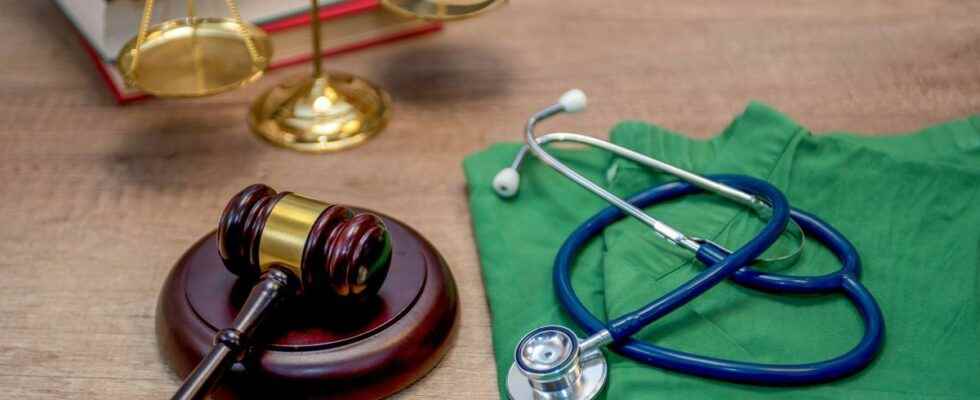Published on
Updated
Reading 3 mins.
Since the comedian was the victim of a stroke last Saturday, the TV sets, radio and press articles are linked. Should the information be disclosed and relayed? If so, should it be in defiance of respect for ethics? The point of view of Gérald Kierzek, emergency doctor and medical director of Doctissimo.
“Pierre Palmade had a stroke at 6:30 p.m., at 11 p.m. the subject was looping on BFM TV, we can clearly see that there is a problem with the secret professional and leaks have occurred” comments first of all Dr Gérald Kierzek, emergency doctor and medical director of Doctissimo. “This is worrying, because secrecy is the basis of the relationship between the patient and his doctor, they are the only ones who really know the patient’s state of health and even the immediate family must not know anything, without the patient’s consent. ” he recalls. Elements that go hand in hand with respect for the person and their dignity.
Moreover, the public health code, which recalls the rules of medical ethics, is clear on this subject:
Article 2 (article R.4127-2 of the public health code):
The doctor, at the service of the individual and of public health, exercises his mission with respect for human life, the person and his dignity. The respect due to the person does not cease to be essential after death. .
Article 4 (article R.4127-4 of the public health code)
Professional secrecy, instituted in the interest of patients, is binding on all physicians under the conditions established by law. Secrecy covers everything that has come to the knowledge of the physician in the exercise of his profession, that is, not only what was entrusted to him, but also what he saw, heard or understood.
“Decency and ethics require that we abstain”
Beyond the disclosure of medical secrecy which seems to be shattered in situations of this kind, we are witnessing the comments of many visiting physicians. Among the participants in these TV or radio sets, several doctors give their opinion on the health of Pierre Palmade. “There have been many commentators on this subject, yet decency and ethics would like us to abstain” adds Dr. Kierzek. “VSThese are comments related to the life and health of a public figure, doctors should not participate in this type of exchange, unless it has an educational interest and does not harm anyone, but it is not the case here” he further specifies, admitting to having himself refused numerous requests in this regard. Here again, the Public Health Code is very explicit:
Article 3 (article R.4127-3 of the public health code)
The doctor must, in all circumstances, respect the principles of morality, probity and devotion essential to the practice of medicine.
Article 13 (article R.4127-13 of the public health code)
When the doctor participates in an action to inform the public of an educational, scientific or health nature, whatever the means of dissemination, he only reports confirmed data, shows caution and is concerned about the repercussions of his remarks to the public. It is not intended to profit from his intervention in the context of his professional activity, nor to benefit the organizations in which he exercises or to which he lends his support, nor to promote a cause that is not of general interest. .
For Dr. Kierzek, it is urgent that the Council of the Order of Physicians take up this type of practice. “And what about the doctors who express themselves beyond their field of competence, especially in the legal field! Like eminent neurologists for example. A shipwreck of many stakeholders” he laments. If this is true for doctors, remember that the importance of ethics also applies to other professions, such as journalists or lawyers.
